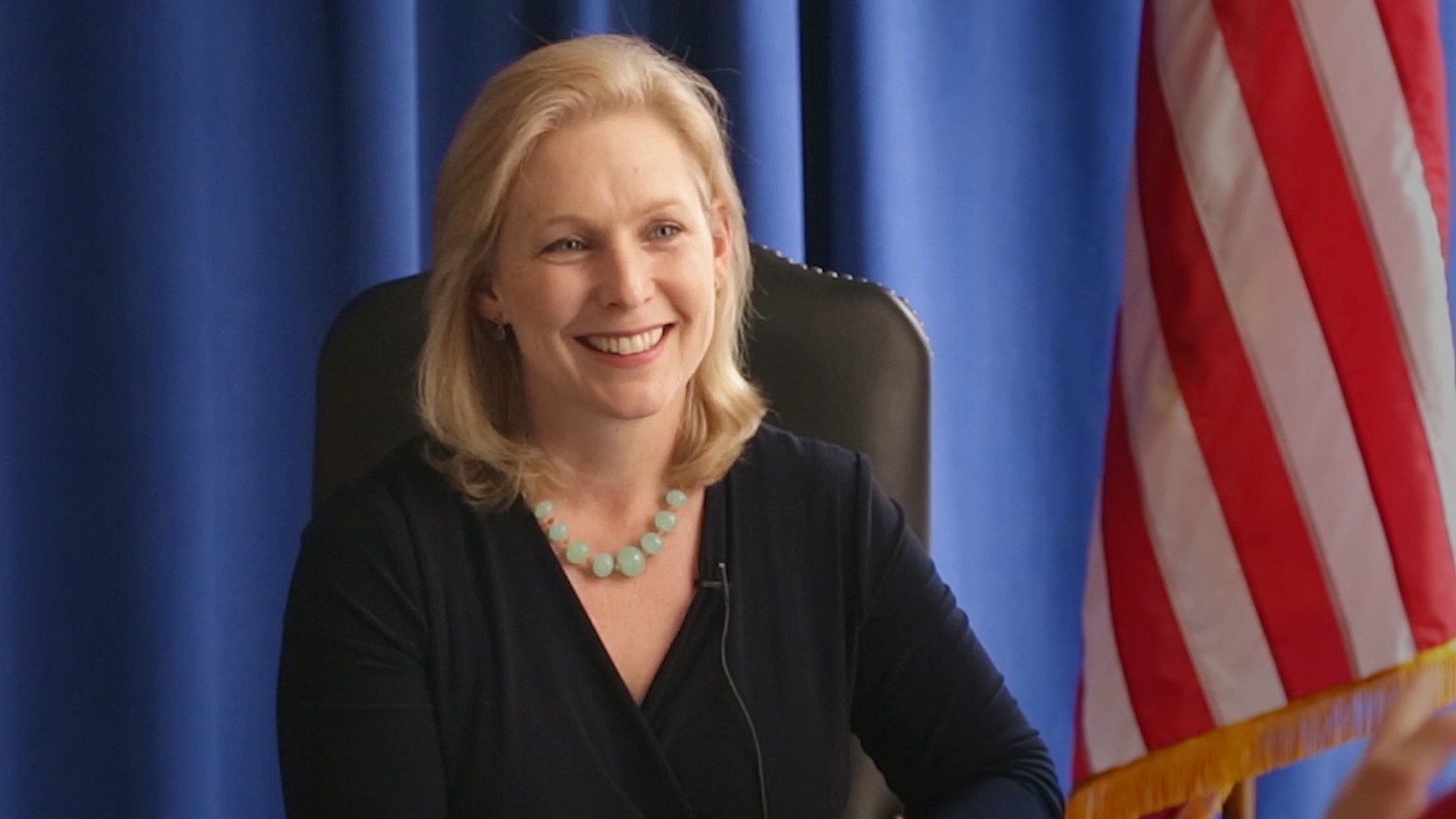Photo by John Moore via Getty Images
Luke R. had been diagnosed with schizophrenia about five years before he found himself detained in an Orange County Correctional Facility in New York. Officials at the immigration detention center allegedly knew about his mental illness but failed to treat it properly, according to a new report released earlier this month by Human Rights Watch (HRW) and Community Initiatives for Visiting Immigrants in Confinement (CIVIC). Instead, for nearly a year, from November 2015 to March 2016, Luke was allegedly given unnecessary medications and put in isolation for behaviors related to hallucinations and other symptoms of schizophrenia.Luke, a lawful permanent resident from Guyana, went months without adequate care before he made a suicide attempt in March of last year, according to the report. A few weeks later, he was transferred to a mental health facility in South Carolina. Luke, who had a case pending in Orange County on charges of property destruction, was recently deported, his former lawyer, Luis Mancheno, told Broadly. (Luke is a pseudonym.)
Watch Now: Senator Gillibrand Is an Unstoppable Force
According to the joint report, immigrants detained in private and public centers are continually exposed to medical abuse and neglect. In some cases, the lack of adequate care, as well as poor ICE oversight, has led to the premature and preventable deaths of detained immigrants, the report charges."Their priority to detain people is so much higher than the priority to keep people safe," said Grace Meng, senior researcher at Human Rights Watch.For the report, the two groups asked independent medical experts to review health records and ICE investigations into 18 detention deaths from 2012 to 2015. What the experts found is that substandard care allegedly contributed to 16 out of those 18 deaths, some of which were deaths by suicide. According to their analysis, facilities often fail to comply with ICE's own medical standards by deferring care, delaying emergency responses, and relying on an unqualified and sparse medical staff.Despite being aware of these institutional flaws, ICE does little to correct problems in its medical care system or hold facilities accountable, the report also charges. In one noted case, a 2015 death report ICE completed on a detainee who died by suicide at Eloy Detention Center in Arizona cited a lack of a suicide prevention plan at the facility. His death was the third death by suicide at Eloy in a two-year period.When Rubel met with the detainee, he realized she was suffering from depression and stress; anger management wasn't going to help. According to Rubel, Hutto administrators tried to force Rubel to follow the orders, but he refused; instead of listening to him, they transferred her out to another facility that would oblige, he said."For someone to make a recommendation that they have to go through these programs in order to be reunited with their children is certainly questionable, at best, and at worst may even be unethical," Rubel said.Earlier this year, Trump shut down the US Department of Homeland Security's Office of Detention Policy and Planning, which led ICE's detention reform efforts. "The fact that he is not even interested in requiring facilities to meet these standards is a really troubling sign that this is an administration that is not committed to keeping people safe," Meng said.
Advertisement
"This is definitely one of the hardest cases and saddest cases that I worked on," Mancheno said. "There were many obstacles and barriers the system put in his way that ended up putting his life at peril and ending up separating him from his family forever."Immigrant rights advocates say Luke's experience is not an outlier for immigrants in US Immigration and Customs Enforcement (ICE) detention centers, arguing that medical care in detention facilities across the country is unacceptable. And the report released earlier this month by CIVIC and HRW alleges the frightening depths to which systemic failures may perpetuate serious lapses in mental health care seen in Luke's case and beyond.Read more: Meet the Former Undocumented Immigrant Running for Congress to Fight Trump
Watch Now: Senator Gillibrand Is an Unstoppable Force

According to the joint report, immigrants detained in private and public centers are continually exposed to medical abuse and neglect. In some cases, the lack of adequate care, as well as poor ICE oversight, has led to the premature and preventable deaths of detained immigrants, the report charges.
Advertisement
At York County Prison, an ICE facility in Pennsylvania, a detainee who died by suicide in October 2013 was allegedly placed in isolation over 12 times because of mental health issues. According to the report, her death was preceded by one other suicide attempt. The report states that York staff tried only once, shortly before her death, to find her an alternative treatment facility; ICE responded that one "was not available at that time.""They didn't take seriously the fact that she was suicidal," said Meng, who was a lead author on the report. "The investigation found that people thought she was seeking attention. These are medical specialists working at the facility."Read more: For LGBT Undocumented Immigrants, Detention Means More Fear and Humiliation
Advertisement
"What really surprised me was the extent to which ICE, even when they identified problems, did not fix them," Meng said. Core Civic, which runs Eloy, did not return Broadly's request for comment.Detention center administrators also failed to follow proper standards and listen to the professional opinions of their medical staff, said Dr. John Rubel, a clinical psychologist who spent two years counseling women held at T. Don Hutto Residential Center, a privately-run immigration detention facility in Taylor, Texas. In one case, Rubel said he recommended a woman transferred to Hutto receive therapy instead of undergoing anger management and parenting courses. The woman lost custody of her child over an alleged incident of abuse and was ordered by ICE officials to work on her "anger" in order to regain custody. That order was based, in part, on a poorly conducted interview with the woman in Spanish, a language she doesn't understand very well, he said.What really surprised me was the extent to which ICE, even when they identified problems, did not fix them
Advertisement
ICE spokesperson Nina Pruneda told Broadly that the agency is "committed to ensuring the welfare" of everyone in custody. According to Pruneda, ICE provides an initial physical exam and follow-up treatment for anyone with health conditions. "All ICE detainees, regardless of location, can expect timely and appropriate responses to emergent medical requests, and timely medical care appropriate to the anticipated length of detention," she said in an email statement. "At no time during detention will a detainee be denied emergent care." (ICE did not comment on specific cases in its facilities.)But CIVIC and HRW's report paints a much different picture. Human Rights Watch also identified a pervasive pattern of "systemic indifference" to medical needs while interviewing immigrants, family members, and their advocates. And some advocates worry that the subpar medical conditions will only worsen under President Donald Trump as he ramps up his anti-immigration enforcement and rolls back detention standards.Read more: ICE Detained Undocumented Trans Woman When She Sought Domestic Abuse Protection
Advertisement
As part of the report, HRW and CIVIC made more than 15 recommendations on how DHS, Congress, and state and local governments can reform medical care in immigration detention centers. Among the suggestions, CIVIC and HRW called for an end to solitary confinement for people with mental health conditions; a decrease in detention of immigrants with serious mental health needs who facility staff cannot properly treat; an increase in transparency of detention operations; and the creation of a national independent medical oversight board that will hold ICE and facility administration accountable.Pruneda told Broadly that ICE will review the joint report "to determine what changes, if any, should be made based on its recommendations."This is a system that needs more oversight, not more deportation and detention
According to Meng, agency officials had shown little interest in program reforms when they met with the two groups earlier this month prior to the report's release. ICE has also yet to respond to the final report, but there's little faith that it will — the department didn't respond to preliminary findings the groups sent agents back in July, she said.But elected officials "can and should" play a role in reforming the system, she continued. To start, Congress can better supervise DHS, as well as deny Trump's budget request to pour more money into immigration detention. Meng also suggested that states mandate stronger enforcement of standards in their detention facilities, and make it more difficult for ICE agents to detain people. That would expose less people to "dangerous conditions" such as subpar medical care."This is a system that needs more oversight, not more deportation and detention," she said.
